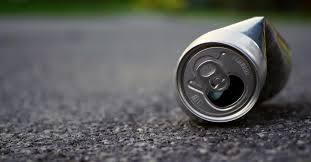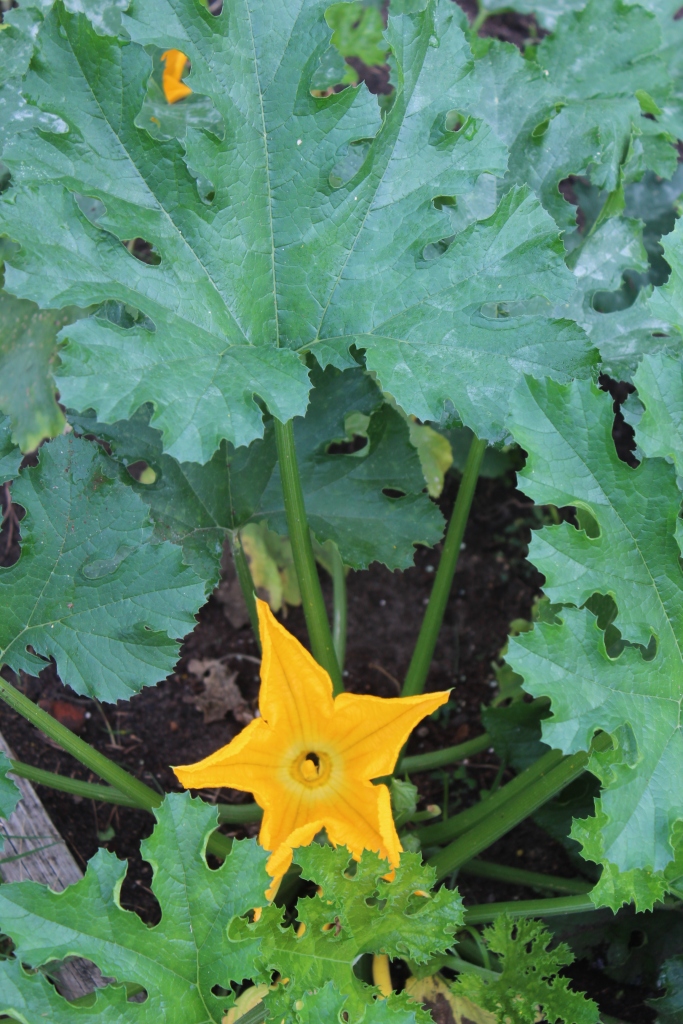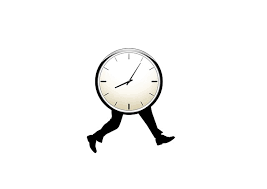Fun don’t get no respect.
November 1, 2020 § 7 Comments

Maybe that’s because Fun makes Serious look bad (self-important, pompous, baw-ring) and you know Serious doesn’t like that.
Simple as sugar water, Fun requires no interpretation, no prior experience to understand (Erudite demands credentials before it will reveal what the heck it is talking about).
Fun leaves no lasting effect, erects no monuments. Fun hides no deeper meaning. Fun is something you just get—and it gets you—it may cause you to snort-laugh, and where’s the Dignity in that? …exactly.
Fun is what you do when you are between things, worn down like an old eraser from doing The List (Fun never makes or shows up on The List).
Fun doesn’t solve anything, but it can be a detour out of a tense situation. Fun takes on conflict by putting the combatants in bumper cars. Pretty soon Anger is traded for the joy of ramming each other and, yes, snort-laughing.
Labeled “immature” Fun is often tossed into the toy bin of youth, that bin then lugged up to the attic to gather the dust of Sober Adulthood, the excuses for lifting that lid again being: 1.) I’m on vacation. 2.) I’m drunk! 3.) I have kids—I have to goof around with my kids, right?
Fun never climbs up on a pedestal like, say, Beauty or Truth—unless it is to pratfall off that pedestal and face-plant, or land on its ass.
Dignity looks down its nose at Fun. But does Fun care, or even notice? Most of the time Fun is busy tripping over its own feet just to get a laugh—once in a while even Dignity gets caught off guard and chuckles before quickly composing itself again.
Fun skips meetings (although it sure would help if it didn’t). Fun has no framed diplomas hanging stodgily on the wall. Fun has no resume.
Fun leaves behind no Great Art, no Timeless Literature, no Profound Truths. It blows through like an unexpected breeze, leaving nothing but the buoyant feeling of having laughed or let out a breath held far too long—and perhaps a little telltale glitter scattered on the floor.
Kicking the can.
October 19, 2020 § 5 Comments

These days my life keeps moving the way a can kicked down the street does. I pick out a direction. It may be random, over there being little different from where the can currently rests inert. But I crave the more active kind of inertia; inertia of motion. So I haul back, take aim, and kick—and I send that can flying!
It is satisfying to watch it arc, tumble through the air, land with a clatter. Then I get to trot over to it, catch my breath, and take another swing.
I sense that this is the way to avoid the other kind of inertia: inertia of rest, the one that leads to depression, despair—and flat-out giving up.
The literal result of each kick I take at the can is that I accomplish a small, finite task, one that can be crossed off a list. Somewhere else another isolated human may be producing the next great novel, planning a revolution, striving toward a cure for Covid-19. I am content with an organized kitchen shelf.
I understand that I am privileged. Those who are at an earlier stage in their lives—raising kids, paying rent, building careers—have to do more than stay in motion, ward off despair, organize a shelf. They must produce substantive results. While I kick the can down the street, they are Sisyphus pushing a boulder that is far too heavy up a hill that is far too steep. They have no choice but to strain to accomplish what they must in order to survive.
The good news for the young is there will be a vaccine; there will be a future in which Covid has joined scourges of the past like polio and small pox, threats that have been tamed.
At sixty-nine this could be the rest of my life. Or not. Either way, I will keep going, even if what I accomplish is small.
A body in motion tends to stay in motion.
So I kick that can wicked-hard, then watch. Turning end over end, it catches the sunlight as it sails toward the blue of the sky.
The Rickety Bridge
October 4, 2020 § 10 Comments

I have no expectations beyond this moment. Balanced on the pin-head of now, I make no assumptions about the future; take nothing down the road for granted. This makes the small things that go right feel like gifts—if I don’t expect, anticipate, or feel deserving-of, when something good occurs, gratitude washes over me.
The downside is that I don’t dare to hope, or let myself look ahead, or plan. The future is a bridge too rickety to imagine walking across, but in truth, has there ever been a bridge there at all? The future is never a done-deal until it becomes the past. Maybe that is a truth that has just become more apparent.
Now that I accept this uncertainty, I clutch the moment; do the work of the moment. I call a friend. Wash a dish. Cross a small finite task off a small finite list, a list that would resemble a plan if it were not so immediate and modest—and I keep going…I keep going.
If, now and then, I give up, it is only for a moment. Then the next moment comes along. I discover I am still standing and I take the next step.
I cry more often. Laugh more often. Since the moment is all that is, it hits hard. Sad or happy? Each gets my full attention.
We used to be more connected to each other, more often in each other’s company. We had places to go and things to do. It was our collective dreams and efforts that turned the wheels of time. In relative isolation I lean hard on habits to give the world shape. I walk, stretch, sing scales, and I hold a pen and write my daily pages.
If nothing else, I am a witness, one of many court stenographers recording the unfolding and overwhelming case being argued by the pandemic.
One moment becomes the next, and still I am here. And you are here. And as is always the case, although we are rarely aware of it, this is our moment.
Note: My Slow Dance posts are often typed out of the pages of a journal in which I write a daily essay. Building a bridge of my own, a bridge of words, is a way to hold the days and weeks together, a way to make sense of them. This daily practice might help you too. Give it a try.
What day it is?
August 22, 2020 § 6 Comments
How old would you be if you don’t know how old you are? Satchel Paige
What day would it be if you don’t know what day it is? Adrian Fogelin

I’ve come unpinned from the clock, the days of the week, even the seasons.
Oh, I know we are adrift somewhere in the dog days of summer, somewhere in the long, long stretch of hurricane season—and I know we’re in the season of Covid, and that it has droned on and on and on, but time as a measurable commodity has turned to a handful of confetti. It scatters. It blows away on the wind.
Sometimes, with deliberate thought, I can pin down what day it is. Sometimes I get it wrong, but in the ah-hah moment, with the name of the day firmly in hand, I feel triumphant, as if I have caught something elusive in a clever trap.
Yup. It’s a Tuesday all right. But when I look more closely at that trapped Tuesday I see it bears no particular markings. It looks an awful lot like…a Monday… or maybe a Thursday. This day I am struggling to identify has not bothered to dress for the occasion.
The days of the week used to arrive clad for the purpose of the day ahead. You could tell which ones were going to work, which were getting together with friends. Each day made clear that it had a goal, an activity planned, an obligation to fulfill—or not. Like Saturdays.
Saturday used to slouch in, all casual, but now it is every day that saunters in, sloppy and comfortably dressed, and all, oh, whatever. It’s not like those formerly busy days have anywhere important to go during the pandemic.
Time markers have become as fragile as old post-it notes, the glue barely tacky.
Guess time markers were mostly there for me to coordinate my Tuesday with your Tuesday.
I miss that. I miss agreeing that, a.) it is Tuesday, and b.) since it is Tuesday you and I are getting together (even if it is just at adjacent desks in a windowless office).
I liked knowing we would get together because we always do. Every Tuesday. Or did before Covid.
So, what day it is?
I am looking at the current day closely…it looks a lot like the last one, which I can safely call “yesterday.”
Oh heck, it is some day or other. Does it really matter which?
Maybe I’ll just call it “today.” And after that comes, I believe, a day called “tomorrow.”
For now, that’s the best I got.
So, have a nice “today” and may “tomorrow” dress for the occasion and strut on in, making it obvious what day of the week it is.
May the wheel of time begin to turn again, with purpose.
I don’t want to go to heaven.
August 4, 2020 § 2 Comments

…at least not the heaven of infinite repose, the one described by the churchy. As the gospel tune says, Wish I was up in heaven sitting down. That heaven is a place with muzak as persistent as a grocery store’s, only heaven’s sound track is an endless medley of praise and pep rally. You go God! (And more harps than any music requires).
Personally, I think any God worthy of the title is above needing or wanting continuous praise, and even the most grateful souls would tire of singing those atta-boys-without-end. Sooner or later some upstart member of the heavenly choir would just have to bust out with “Mustang Sally.”
The big problem is that heaven, as advertised, is static. It drones along. The YOU HAVE ARRIVED sign would get so tiring to the soul that has been staring at it for what seems like an eternity (and perhaps is).
Souls are curious, wandering beings. They rove and ramble, they discover and change. Shouldn’t heaven, any heaven worthy of the name, honor that state of always-in-flux which, to my mind, is one of our most invaluable gifts from the creator?
We are meant to be fluid, always in the process of becoming. We are meant to learn and grow. I want that kind of heaven.
Heaven can’t be a place where we sit and rest, neatly stored like fine china behind the closed door of a polished china cabinet.
I want a heaven that is surprising, stimulating, challenging, a heaven that takes your breath away—a heaven in which we still have breath to take away.
I guess my heaven is right here on earth.
For all its uncertainties, calamities, and disappointments, what could hold more promise, what could be more vivid and exciting? What could be better than life?
Note: If heaven turns out to be what the churches preach, I’ll be that solo voice singing “Mustang Sally.”
Hope and joy.
June 7, 2020 § 7 Comments
Hope is an investment in the future. It yearns toward an anticipated joy. But when the future is so uncertain it may last just a few days, it is hard to risk such an investment.

As the old saying goes, make a plan, make God laugh.
If we have learned anything from the virus it is that we are not in charge, so why jinx ourselves?
Unavailable for now is the joy that comes from aspiration followed by success. Also unavailable is the joy of a past success remembered.
I don’t imagine myself performing on some future stage; will there ever be a time when Hot Tamale can play for a gaggle of folks standing carelessly close to each other, maybe even dancing? And when a moment from a past performance flashes up, it hurts. Why wasn’t I more appreciative when it happened? How did I ever take it for granted?
I try not to remember or imagine seeing our daughter, her husband, and our two grandsons. Getting to New Jersey seems suddenly like a voyage off the edge of a flat earth.
Joy, as we have known it, is in short supply.
Luckily, there is a second, more spontaneous form of joy, one not predicated on hope. Unplanned, and unearned (like grace) this form of joy is more abundant in this time of crisis. Momentary and unplanned it takes us by surprise. This sudden splash of joy might have gone by unnoticed before the Corona Virus. We were all so busy then, so preoccupied, so puffed up with purpose.
This joy comes unexpectedly, overtaking us without anticipation or planning. Because we are moving slowly enough, mindfully enough, we notice the sudden, intimate beauty of something as small as a milkweed beetle walking a leaf.

Joy is sized to match what is possible. Right now it comes in the smallest of packages: a colorful butterfly in the backyard, a loaf of homemade bread rising in the pan, a two-year-old grandson saying, “How are you guys doin’?,” his face big on the screen.
Stilled and slowed, we take the time to really see what has always been all around us. This new awareness is a byproduct of the disruption of our routines, but it may also be a byproduct of vigilance. We are fully awake and really observing our surroundings, scanning for threats, and as we do so we see everything more clearly, the good as well as the dangerous.
Who knew the world was so beautiful?
We hope to hope again sometime in a future we are deliberately not imagining (why make God laugh?). Until then, we subsist on moments of joy that come unexpected.
And, for once, we are present enough to receive them.

Note: When I wrote this essay in my daily journal, we were hunkered down–as we mostly still are–but we now plan to make that drive off the edge of the earth to go see our daughter and her family in New Jersey. We will make the car trip nearly as self-contained as astronauts aboard the Space Station–and hope we don’t make God laugh.
How it gets done.
May 31, 2020 § 5 Comments
 This post has been sitting in draft form for months. It is a relic of the “normal” we lived prior to Covid-19.
This post has been sitting in draft form for months. It is a relic of the “normal” we lived prior to Covid-19.
In some ways, we have achieved the heightened awareness the post suggests, something we often only gave lip service to before the pandemic.
“Getting it done” often begins with a list:
Bathe the dog, pickup a dozen eggs, lose thirty pounds, finish reading the book started last summer, bake bread, call my sister, write that memoir….
The “how” of “getting it done” will fall somewhere between the following two choices:
1.You juggle. Everything on the list will get done incrementally. A little here, a little there. You move fast and leave each project with an I.O.U. and an apologetic, “Hey, I’ll be back,” and hope no task hits the ground before you can catch it again.
Upside? If you’re good at juggling there is rarely a big mess to clean up, and you don’t disappoint anyone–at least not completely.
Downside? Completion of each task comes with, at best, a moment of relief before you rush on to one of the other projects keening for your attention.
2. The single-project strategy: I will sit in this chair until I write ‘The End’ on this damned memoir! All other projects can pout, twiddle their thumbs, even wither and die because, for me, there is no other project.
Upside? The payoff is huge. You’ve slain the dragon! This calls for a ticker tape parade! A new national holiday!
Downside? You look up, and all your other projects are sickly and wilted, and those who have a stake in those other projects, or simply wanted a decent conversation, are good and ticked off. Still, for some there is only one project and it is worth living for, maybe even dying for: martyrs and saints, writers and artists, scientists and dictators—the rest of us have spouses, bosses, friends, and lists that natter at us too loudly to be ignored.
But neither strategy solves the underlying problem.
Time is the get-it-done problem that can never be solved. Time, a river that flows without end, is infinite. We, the list makers, are not. We, ourselves, are items on a list of a higher order and we will, one day, be crossed off.
As finite beings we have limited time to get anything done. Perhaps we should expend a little of that limited commodity to question the whir that keeps us in constant motion. Perhaps we should sometimes set it all down and do…nothing.
This idea can cause panic. Americans are a get-it-done people. Whether in increments or in one long march, we define ourselves by what we accomplish. The busy person seems far more important than the guy sitting on a bench enjoying the warmth of sunlight on his face.
Still, let’s entertain this idea as a third strategy.
3. Don’t get-it-done. Don’t do anything at all. Just be.
Sit still and feel the sun on your face and call it only, the moment.
You won’t vanish. You won’t depreciate in value. And you won’t sit quiet for long before you are, once again, doing.
But sometimes…sometimes…it is better to be the rock in the river, the rock that simply is, as the river rushes by.
The Garden.
May 24, 2020 § 3 Comments
In our current isolation we reach out to each other virtually. We lean, with longing, toward the screen as if it were a window (we are such social animals).
We are also domesticated indoor animals, techno-animals—but not to this degree. We still like to be physically close to others, not locked in our private towers.
But if we can’t congregate, hug a friend, worship together, celebrate graduation, or gather on poker night, we can open the door and walk outside.
And since we are doing-animals, while out there, we can grow something.

Growing something, in contrast to clicks and keystrokes which move nothing in the real world, creates physical change.
A garden is a literal place.
The gritty dirt, the persistent weeds, the sprawl and tang of tomatoes, the ire of disturbed ants, the weight of sun on bare arms; all are solid-real as the gardener works on a project that responds to sweat-labor, but also to the uncontrollable elements of weather, season, time, and biology.
All we control in the garden is our own, human input, and every one of those inputs is administered by hand so there is dirt under our fingernails. The skin is cracked. Weeds are heartier than the gardener’s desired crop, grow twice as fast, reach for the heart of the earth, and stubbornly hang on as the gardener leans back, muscling them out of the dirt. When the sky withholds, water comes out of a hose held for as long as it takes to soak soil deep—gardeners have a lot of time to think.
And as the gardener thinks, the garden offers lessons.
One of those lessons is humility. Plants don’t care about the gardener’s desires or schedule.
They grow slowly—or they boom.
They thrive—or they don’t.
The gardener can’t dictate which, but is allowed to take credit and swell with pride when harvesting those sun-warmed tomatoes—also allowed is a profound cussing of the bugs, the weather, and the plants themselves.
Gardeners think. And gardeners cuss.
Each growing season is unique. More heat. Less heat. More rain. Less rain. A plague of insects. Insects that only take their share—there are always insects. Organic gardeners understand that tithing to them is part of the deal.

Days pass. Plants sprawl. The pandemic drags on, but if all goes well, as each plant reaches its zenith it will inundate the gardener with too many tomatoes, squash, peppers. Overwhelmed, the gardener will freeze, pickle–and share, even if that share has to be left in a box on a doorstep.
Hopefully, we will have access to each other in person before too many months have passed, but until then, the natural world offers us its company, its lessons, an opportunity to think and cuss, a bounty to share even if we cannot cook and eat it together, and this reminder: we are still residents of Eden, even if it is buggier and requires us to invest more sweat than the Bible led us to believe.
Note: As I walk my neighborhood I see pots of tomatoes edging driveways, fresh-turned garden patches in the middle of lawns that weren’t there prior to the pandemic.
Note 2: Take a listen to The Okra Song. I began writing it as I held a hose in the community garden, the sun beating down—there was more cussing than thought involved until I got home to my guitar.
Look Ma, no hands! (It’s all virtual now).
May 17, 2020 § 4 Comments
I am good at reading people. You are too. We humans get the meaning of gestures. We stand close together so we can make eye contact or put a hand on an arm. We choose our words and the tone in which we say them, we listen for signals that are not embodied in words—just the intake of a breath can be enough to cue us.

Human to human communication is nuanced and subtle, but we get it. Life is a dance we do with others. We lead, we follow. Either way we are attuned to each others’ signals.
But, at least for now, we can’t do that. For now other people are off-limits: people in close proximity; people within range of a hug, a subtle gesture, a facial expression; people close enough to be read human-to-human.
All situations that require cooperation and advice are now mediated through one device or another. Sometimes a human face appears, sometimes a human voice speaks, but often the human is prerecorded, not there in the moment at all.
That face, that voice are no longer connected to a human ear, a human mind, a human heart: “We are currently experiencing longer-than-usual wait times due to the unusually high volume of calls. Hold time is now three hours.”
No human would say that so cheerfully in real time, but the human who said it has no connection to the desperate person on hold.
The voice chirps on: “Continue to hold or press two for a call back.” The caller presses two, but knows, no one is calling back.
In this time of crisis the call that is going unanswered is not frivolous. It is made to procure food, or rent money, or medical advice. It is made after the caller has tried to get an answer through a search of the ether, a search that hit a dead end, the algorithm saying in computer-eze: You have failed to jump through the hoops properly. There is no help forthcoming for you, oh unworthy nitwit.
If only the caller could explain the situation to a human being…
But there is no human being. So the unworthy nitwit gets no answer and feels like a failure into the bargain. In truth, it is The Machine that is the unworthy nitwit. The nuanced, intuitive, thinking, human, who is capable of solving problems in myriad different ways, interfaces with The Machine which thwarts the human for not following its baroque, un-intuitive protocols, for not executing perfectly a series of Mother-May-I steps no human would ever require.
And so, the subtle, thoughtful (and desperate) human being is told. No answer for you. You’re doing it all wrong–but to get by now, we must figure out how to do it right.

As imperfect as the match is, we now interact with The Machine, or if we are interacting with each other, it is often mediated by some form of technology.
We deal with each other, hands-off. No human touch. No human warmth, and every time we are unable to manage the virtual world, we take the blame.
We are stupid, slow, old, frustrated. Stuck.
No we’re not. We’re human.
For the entirety of our evolution we have relied on subtle, person-to-person communication. We have cooperated and collaborated. We have sought each other’s advice, solved problems together. We have lived real, not virtual lives.
There is much to be said for the high-speed, super-fast, data-driven virtual world, especially in a time when we are literally a threat to each other’s health, but if you don’t believe in the greater nuance and power of human-to-human contact step in front of a mirror and make a couple emoji faces. You look insane, right?

The cues we send each other are subtle, multi-layered. Artificial intelligence cannot replace human intelligence and the ingenuity, kindness, and understanding that resides in our gestures, our facial expressions, our voices, our touch—our humanity.
Note: I write this because I miss all of you–and I am mad at a printer that will not do my bidding. I believe if it could, it would be making the face that is at the far right on the bottom row above. It is disquieting to have a printer LOL at me.

